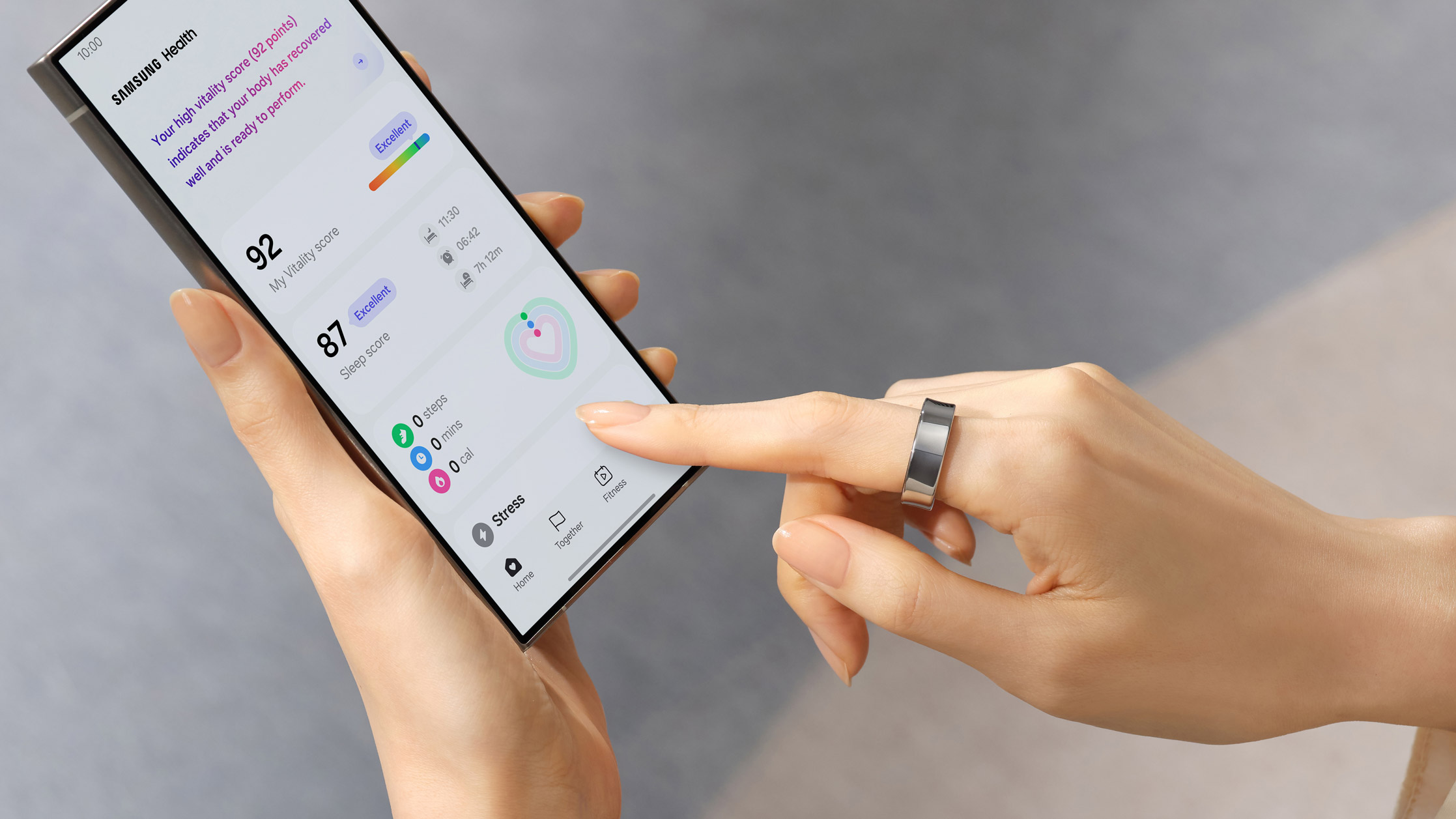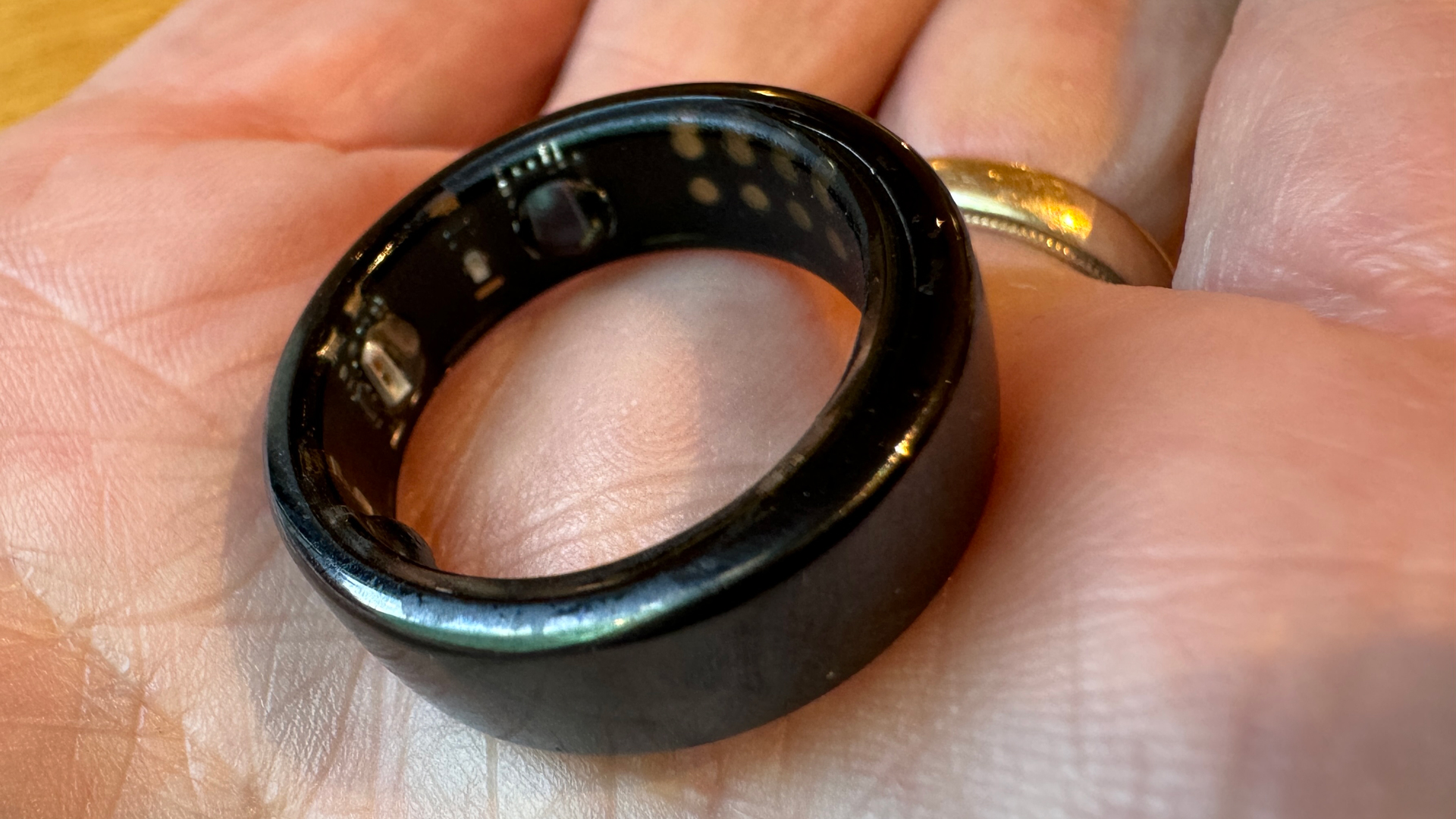Samsung's legal battle with Oura over Galaxy Ring similarities tells me the smart ring era has officially arrived
Oura and Samsung face off, Western-style

Who’s got the fastest trigger finger – or should that be ring finger? For months, Samsung and Oura have been eyeing each other from 20 paces. Now it’s finally high noon, and outside the Smart Ring Saloon, tumbleweed drifts across the road between the combatants while zoomed close-ups show their fingers (adorned with their respective smart wearables, obviously) twitching over holstered lawsuits and marketing strategies.
Perhaps I’m being a little fanciful, but this is what the best smart ring race has felt like ever since February 2024 and the Samsung Galaxy Ring’s official unveiling at Mobile World Congress. Before then, smart rings had almost exclusively been the province of Finnish health-tech company Oura Health, with some start-ups like Ultrahuman, Circular, and Ringconn filling the gaps in recent years. And the less said about the army of cheap knock-offs flooding sites like Amazon, the better.
However, smart rings are finally coming of age, as major tech brands are realizing the untapped potential this smaller form factor offers. There will always be people who don’t want to sleep with smartwatches on, or who get frustrated with short battery lives and emails popping up on their wrists, and those frustrations present a barrier to Samsung, Apple, and the rest. Smart rings, discreet wellness trackers that can handle things like NFC payments, and which offer better battery life than a watch thanks to the lack of a screen, are the ideal solution.
For a long time Oura has dominated the smart ring market, practically unopposed, most recently with its hugely popular Oura Generation 3 device. I’ve worn it, and it’s very good: its metrics are accurate, it’s comfy to wear, and it looks great. It’s been worn by celebrities including Orlando Bloom, Jennifer Aniston, and the Queen of early-adoption wellness trends herself, Gwyneth Paltrow.
But its position is far from secure, and the arrival of other smart rings of comparable quality has Oura worried. Soon after the Galaxy Ring was unveiled, Oura responded with announcements of its dedicated Amazon storefront, and deals with retailers such as Target in the US and John Lewis in the UK. The Oura team embarked on a global media campaign – I was one of a handful of journalists who sat down to lunch with CEO Tom Hale in April – to announce a handful of new features.
At that lunch, Hale intimated that Oura wasn’t worried about the Ring, adding that plenty of people who didn’t have Samsung phones would have their interest piqued in smart rings, and that greater awareness of the form factor was a net positive. However, a month prior, in March 2024, Oura had filed with the United States International Trade Commission against RingConn, Ultrahuman and Circular for patent infringement.
In the blog post linked above, Hale wrote:
“We support and welcome innovation that moves the category forward. Unfortunately, when we see companies take shortcuts that imitate and ride the coattails of our innovation, we have no choice but to take action.”

Seeing Oura move against those competitors, Samsung has opted for a preemptive strike, filing a suit against Oura to prevent Oura doing the same to Samsung. It's ironically a rather circular turn of events: Samsung suing Oura in order to stop Oura suing Samsung.
You can read the suit in full here, but Samsung has said the following, which sums it up nicely:
“Oura has seen fit to assert infringement of its patents based on features common to virtually all smart rings, such as the inclusion of sensors, electronics, and batteries, and displaying a summary of the sensors’ measurements to the user, often in the form of a ‘score’. And Oura has sued at least one manufacturer of a competing smart ring product even before that product was delivered to customers in the United States.”
Samsung is looking to standardize the legal definition of a smart ring, and ensure that the way is clear for it and others to create devices that fit this definition. Samsung also calls out Oura’s response to Masimo suing Apple for infringement on its own patents in December 2023, as an example of smaller tech companies taking on the big dogs in US courts and winning.
Oura, if it has its way, would remain the only game in town. To return to the Western gunfight metaphor, it’s squaring up to every major challenger in the smart ring space and declaring “This town ain’t big enough for the both of us.”
But it’s fighting a losing battle: change is coming, and you can bet that every wearable and health tech company will be watching Samsung’s progress very closely. If the Samsung Galaxy Ring takes off like I think it will, Oura’s legal department is set to be very busy indeed.
You might also like
Get daily insight, inspiration and deals in your inbox
Sign up for breaking news, reviews, opinion, top tech deals, and more.

Matt is TechRadar's expert on all things fitness, wellness and wearable tech.
A former staffer at Men's Health, he holds a Master's Degree in journalism from Cardiff and has written for brands like Runner's World, Women's Health, Men's Fitness, LiveScience and Fit&Well on everything fitness tech, exercise, nutrition and mental wellbeing.
Matt's a keen runner, ex-kickboxer, not averse to the odd yoga flow, and insists everyone should stretch every morning. When he’s not training or writing about health and fitness, he can be found reading doorstop-thick fantasy books with lots of fictional maps in them.